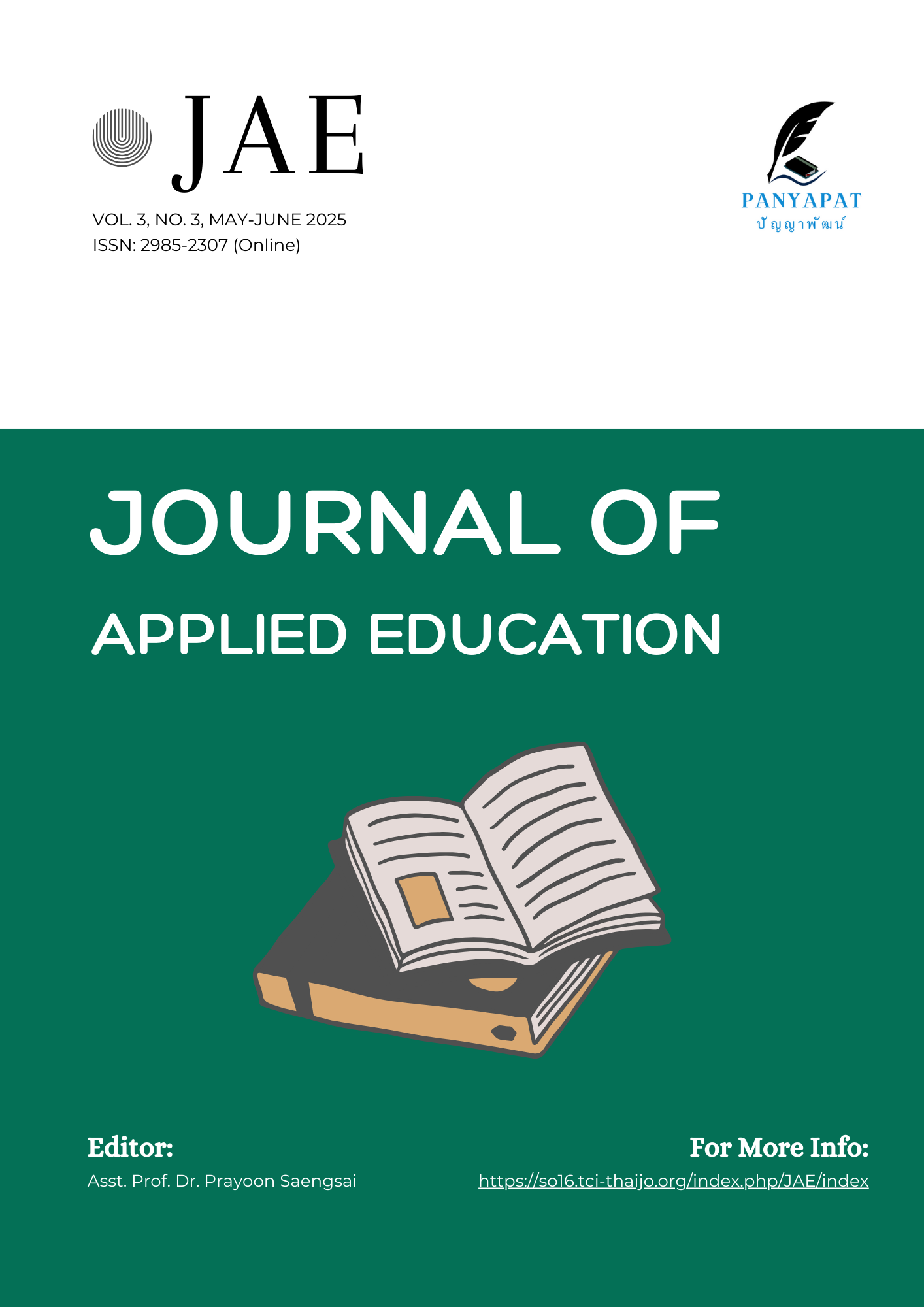The Impact of 21st Century School Leadership Skills on Fostering Happy Organizations in Educational Institutions, Under Nan Primary Educational Service Area Office 2
Main Article Content
Abstract
The objectives of this study were to (1) study the skills of school administrators in the 21 century, (2) study the organization of happiness in educational institutions, (3) study the skills of school administrators that affect the organization of happiness, and (4) create an equation to predict the skills of school administrators in the 21 century that affect the organization of happiness in educational institutions, affiliated to the Nan Primary Education Area Office, District 21 2. The statistics used in the data analysis include mean, standard deviation, and stepwise multiple regression analysis. The results showed that: 1) The skills of school administrators in the 21st century are at a high level in all aspects, 2) The organization of happiness in schools is at a high level in all aspects, and 3) The skills of school administrators that affect the organization of happiness. There are 4 areas, namely communication skills, creativity skills, interpersonal skills, and vision skills, which are statistically significant at the level of .01. 4) The prediction equation for the skills of school administrators in the 21st century that affect the organization of happiness in schools affiliated to the Nan District 2 Primary School Office is as follows: Prediction equation in the form of raw score Y ̂= 1.305 + 0.198(x1) +0.225(x4) +0.136(x6) +0.106(x2) and prediction equation in standard score Z ̂= 0.209(Zx1) + 0.258(Zx4) +0.153 (Zx6) + 0.117(Zx2).
Article Details

This work is licensed under a Creative Commons Attribution-NonCommercial-NoDerivatives 4.0 International License.
References
กนก วงษ์ตระหง่าน. (2564). ปัญหาและสาเหตุการลาออกจากวิชาชีพครู: การศึกษาเชิงคุณภาพ. วารสารการศึกษา มหาวิทยาลัยศิลปากร, 32(2), 45-62.
กรรณิกา เรดมอนด์. (2559). ภาวะผู้นำเชิงกลยุทธ์ของผู้บริหารสถานศึกษาขั้นพื้นฐานกับการบริหารจัดการศึกษาในศตวรรษที่ 21. กรุงเทพฯ: จุฬาลงกรณ์มหาวิทยาลัย.
กระทรวงศึกษาธิการ. (2563). นโยบาย “เรียนดี มีความสุข”: แนวทางการขับเคลื่อนเพื่อยกระดับคุณภาพการศึกษา. กรุงเทพฯ: โรงพิมพ์คุรุสภา.
จันทร์จิรา พรหมเมตตา, วันทนา อมตาริยกุล และ นวัตกร หอมสิน. (2562). ทักษะของผู้บริหารที่ส่งผลต่อองค์กรแห่งความสุขในสถานศึกษา สังกัดสำนักงานเขตพื้นที่การศึกษาประถมศึกษาอุดรธานี เขต 2. วารสารการบริหารและพัฒนา มหาวิทยาลัยราชภัฏนครราชสีมา, 12(2), 25–38.
ชัยยนต์ เพาพาน. (2559). ทักษะของผู้บริหารสถานศึกษาในศตวรรษที่ 21. วารสารศึกษาศาสตร์ มหาวิทยาลัยขอนแก่น, 39(4), 301–311.
นุสรา พูลสุด. (2564). ผู้บริหารในศตวรรษที่ 21: องค์ประกอบแห่งความสำเร็จในการนำพาสถานศึกษาสู่ความเป็นเลิศ. วารสารวิชาการและวิจัยสังคมศาสตร์, 16(1), 78-95.
บุญชม ศรีสะอาด. (2560). การวิจัยเบื้องต้น. (พิมพ์ครั้งที่ 10). กรุงเทพฯ: สุวีริยาสาส์น.
ปัทมพร พงษ์เพชร. (2561). ทักษะของผู้บริหารสถานศึกษาในศตวรรษที่ 21 ที่ส่งผลต่อการบริหารงานวิชาการของโรงเรียน สังกัดสำนักงานเขตพื้นที่การศึกษาประถมศึกษาฉะเชิงเทรา เขต 2. (การศึกษามหาบัณฑิต, มหาวิทยาลัยบูรพา).
ภรณี ลัคนาภิเศรษฐ์ และ ธนิสรา สุทธานันต์. (2564). สภาพปัญหาของครูในประเทศไทย. วารสารศึกษาศาสตร์ มหาวิทยาลัยศรีนครินทรวิโรฒ, 23(1), 15–29.
สมหมาย อ่าดอนกลอย. (2556). การบริหารสถานศึกษาเพื่อสร้างองค์กรแห่งความสุข. วารสารศึกษาศาสตร์ มหาวิทยาลัยมหาสารคาม, 7(1), 6–7.
สุวีณา ไชยแสนย์. (2558). องค์กรแห่งความสุขขององค์การบริหารส่วนตำบลในเขตอำเภอแกดำ จังหวัดมหาสารคาม. (รัฐประศาสนศาสตรมหาบัณฑิต, มหาวิทยาลัยมหาสารคาม).
องค์กรแห่งความสุข 4.0. (2561). คู่มือแนวทางการสร้างองค์กรแห่งความสุข 4.0. กรุงเทพฯ: สำนักงานกองทุนสนับสนุนการสร้างเสริมสุขภาพ (สสส.).
Burton, J. (2010). Organizational happiness and well-being: A strategic approach to human development in the workplace. Geneva: World Health Organization Press.
Cronbach, L. J. (1990). Essentials of psychological testing. (5th ed.). New York: Harper & Row.
Katz, R. L. (1995). Skills of an effective administrator. Boston, Massachusetts: Harvard Business Review Press.
Krejcie, R. V., & Morgan, D. W. (1970). Determining sample size for research activities. Educational and Psychological Measurement, 30(3), 607–610.

